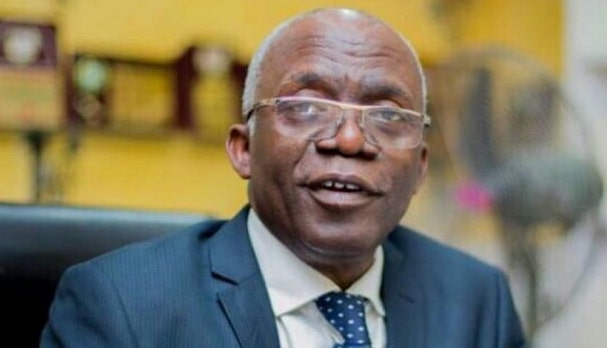By Philemon Amos
Globally, subsidies play a crucial role in good governance, encompassing various sectors such as food, transportation, energy, and housing. However, the key concern lies not in the existence of subsidies but rather in who benefits from them. In the context of Nigeria, subsidies primarily favor the wealthy, are controlled by the wealthy, and ultimately serve their interests. In the following paragraphs, I will shed light on a few instances where these subsidies are manipulated, and propose ways to recover substantial sums of money. These recovered funds can be utilized not only to subsidize fuel but also to foster development initiatives.
- Misappropriation of N40 billion from the Federation Account
The Ministry of Interior in Nigeria engaged the services of Continental Transfert Technique, a company responsible for collecting the Combined Expatriate Residence Permit and Alien Card (CERPAC) Fee from expatriates residing in the country. Each expatriate is required to pay an annual fee of $2,000, amounting to an average revenue of N40 billion per year. However, this collection process violates Section 162 of the Constitution and the provisions of the Immigration Act 2015. Furthermore, the collected funds are distributed amongst various entities based on the following percentages: Federal Government (30%), Ministry of Interior (7%), Immigration Service (unknown percentage), and Continental Transfert Technique (58%).
By rectifying this misallocation, substantial amounts of money can be recovered. These funds could be utilized not only to subsidize fuel, thus benefiting the general population, but also to channel resources towards development initiatives.We successfully challenged this unlawful act in the Federal High Court and emerged victorious. The court issued a directive to the Nigerian Immigration Service (NIS) to collect the funds moving forward and remit them to the Federation Account. However, the contractor and the federal government filed an appeal against the judgment, allowing them to continue sharing the annual N40 billion.
- An additional $1.5 billion in revenue for the Federation Account
In July 2015, we brought to the attention of the Federal Government the expiration of the 15-year fiscal incentives granted to oil and gas companies operating under the Deep Offshore and Inland Basin Production Sharing Contracts Act in June 2014. Despite our request being ignored, we took the initiative to draft a bill to amend the law. This bill, which Senator T. Orji adopted and sponsored, passed its first reading in the Senate. However, it was not enacted into law before the dissolution of the 8th National Assembly.
Fortunately, the same bill was later revised and approved by both houses of the 9th National Assembly. On November 4, 2019, President Buhari assented to the bill. Senate President Ahmed Lawan justified the passage of this bill by stating that it would generate additional annual revenue of at least $1.5 billion for the nation.
- Unpaid royalties totaling $62 billion During my campaign for the amendment of the Deep Offshore and Inland Basin Production Sharing Contracts Act, I appealed to the Federal Government to collect the outstanding royalties owed by International Oil Companies (IOCs) under the Act. The Federal Government acknowledged that the country had lost a staggering sum of $60 billion, but my demand to recover the significant funds was ignored.
In response, the governments of Rivers, Akwa Ibom, and Bayelsa States approached the Supreme Court, which, on October 20, 2018, ordered the Federal Government to collect the royalties for the past 18 years. The Federal Government confirmed that the IOCs had withheld $62 billion in outstanding royalties but refused to take action to collect it.
- Corrupt public officers deny the Federal Government $500 million in revenue
In 2010, the Nigerian Port Authority and TPMS, a private company, introduced the international Cargo Tracking Note Scheme to safeguard international shipping and prevent the movement of dangerous cargo and arms shipments. However, the agreement was suspended just a year later. When the illegal suspension of the Cargo Tracking Note system was brought to our attention, we protested, and it was lifted on May 28, 2015. Unfortunately, it was suspended once again in 2016.
In 2022, President Buhari issued an executive order authorizing a company to operate the Cargo Tracking Note. However, five companies sponsored by top government officials overruled the President and seized control of the contract. The company that had won the contract subsequently sued the federal government at the Federal High Court. Meanwhile, Nigeria has incurred losses of at least $500 million, and the nation’s security has been compromised by a group of corrupt public officers.
- Sale of public assets and enterprises
Under the guise of privatization, success

